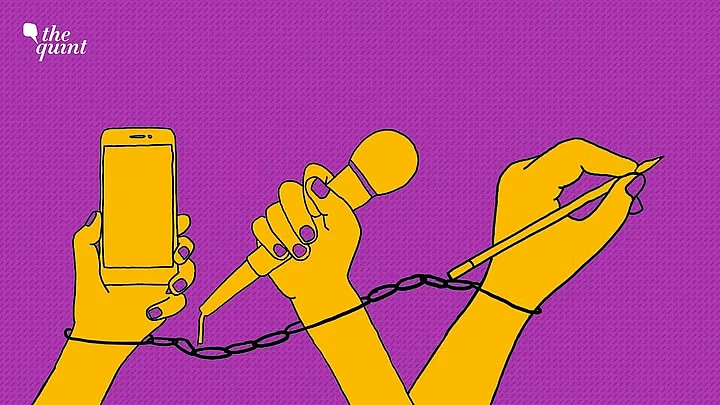This is a warning call on behalf of an industry increasingly targeted simply for doing its job.
This is a shout out in desperate hope of drawing attention to a long and tragic story of death and injury, physical and psychological assault; of journalists and media professionals and their need to be heard, healed, and better protected.
This is also a question. Do we truly share the common values the world has crafted? Or are we human rights proponents in name only?
Because despite fine words, lofty goals and truly ambitious aspirations for a better, more just, more equal, more universal world, time and time again the principles underpinning all of this are sold out, set aside, or simply ignored. The press bears the brunt daily.
A Low Point for Human Rights
Shockingly, we are perhaps the furthest away from achieving universal human rights than at any point in recent history, certainly in many of our democratic polities. The proof? It goes without saying that authoritarian states have been perfecting ways to deny basic human rights for decades.
However, within the democratic world and with alarming frequency, journalists are maligned and denigrated for attempting to defend the public interest, hold our leaders accountable, and enforce the role granted the Fourth Estate. This is the very essence of democratic society, and yet the press is more likely to be seen, at best, as a hindrance and irritation; at worst, a scourge to be eradicated.
The result? 2225 journalists have been killed because of this since 1992.
And so, it is entirely inevitable that a feeling of despair should set in across newsrooms as the world marks yet another day to End Impunity for crimes against journalists. 31 journalists have died in the past three weeks alone. There is very little hope of justice for these colleagues, and scant sign of progress in the hundreds of outstanding cases that continue to fuel impunity across the world.
With multiple conflicts, notably ongoing war in Ukraine and an unfolding humanitarian disaster in Gaza, financial pressures mounting so high there is little room for anything but short-term thinking, and a chronic devaluation of the value of journalism, newsrooms big and small, global and local are – if not burning out – simply running on empty.
Gap Between Mere Lip-Service & Practicality
We consistently see states talking the talk, but failing to walk the walk when it comes to protecting media freedom and broader human rights. Or they flash briefly, and then fizzle out as more pressing geopolitical concerns – trade relations, resource protection, political expediency, the suchlike – outweigh the political capital of ‘doing the right thing-ism’ and sticking to the principles at stake.
Public interest may be the Fourth Estate’s guiding principle, but increasingly it is political or partisan interest – whatever fuels polarization (people after all engage far more when they’re pissed off) and secures reelection – that trumps such otherwise noble virtues.
And while democratic values and the role of the press may be enshrined for many (at least on paper), the reality across developed and emerging markets alike is that those in power are increasingly dipping into the authoritarian playbook to avoid accountability and undermine the role of a free press.
Doing so, they are reneging on their own commitments and devaluing their democratic credentials with every backward step. What is left is merely lip service: as one hand giveth, the other taketh away.
Whatever the likes of Trump or Erdogan or Orban or AMLO or Ortega or Giammattei or Bolsonaro or Duterte or Johnson or Putin or XI Xinping or Mnangagwa etc., do, did, or set in motion, the results are predictably the same: a green light to unpick human rights protections by targeting the press as enemies.
And with such behaviour mirrored by acolytes, enraptured fans, and the opportunistic the world over, armchair critics and bar-stool experts are ‘empowered’ to anonymously take down every phrase or sentence.
As the media, we are used to being alone. Often the only ones pursuing a story, chasing a lead, going the extra length to get at the heart of a story. Reporting can be a lonely exercise, writing up or packaging its own special kind of self-torture.
But where the media really stands apart is in the daily pressures and constant need to justify every move to an increasingly skeptical, frequently hostile audience – an audience fuelled by the political climate and an increasingly pervasive online culture that favours polarization and celebrates the resultant hate and chaos. And this makes doing journalism unsafe. It makes journalists and newsrooms targets like never before.
It means, in spite of all the pressures of a hard business, the ferocious competition, and ever-dwindling resources, there is even more for media organisations to account for and worry about. And without the political action – not the commitment or the talk, but real concrete proof that the Fourth Estate is an equal, valued partner in the democratic dance – they remain desperately alone in doing so.
(This article has been published with permission from World Association of News Publishers. You can read the original article here. This is an opinion piece, and the views expressed are the author’s own. The Quint neither endorses nor is responsible for them.)
(At The Quint, we question everything. Play an active role in shaping our journalism by becoming a member today.)
